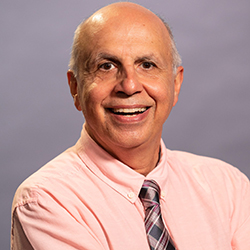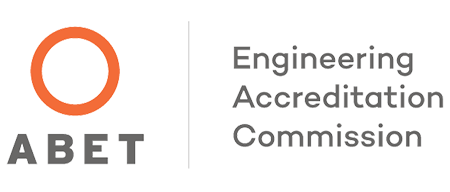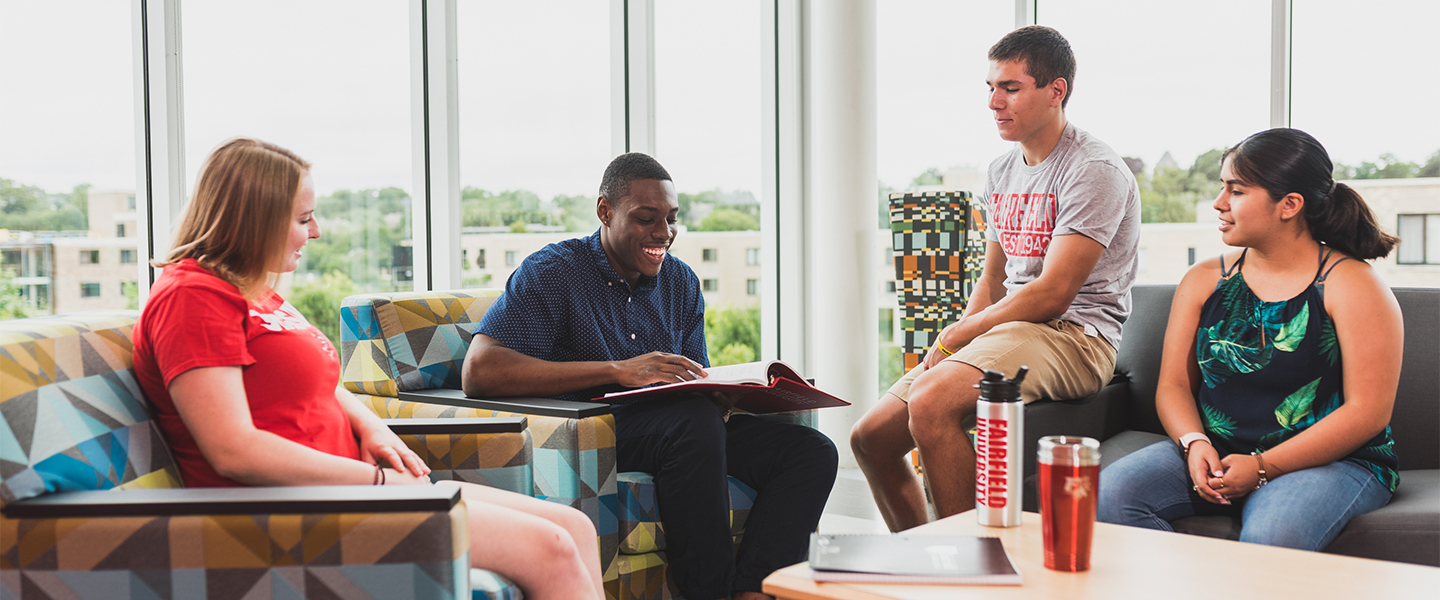Problem-Solving
Identify, formulate, and solve complex engineering problems by applying principles of engineering, science, and mathematics.
The Mechanical Engineering curriculum is designed to focus on experiential learning. This is accomplished through the integration of synchronized laboratory experiences within the framework of theoretical coursework in the basic curriculum. Students participate in hands-on projects aimed at solving real-world problems in our well-equipped campus laboratories and computing facilities.
The program aims to prepare students for graduation by offering rigorous, theoretical coursework that complements Fairfield’s liberal arts education. Mechanical engineering students at Fairfield learn to:
Fairfield's School of Engineering & Computing also has a Master of Science program that allows students to earn a combined BS/MS degree in mechanical engineering, in just one additional year.
Fairfield University Baja SAE Club

Chair, Mechanical Engineering
Professor
x3154
P: (203) 254-4100
F: (203) 254-4199
admis@fairfield.edu

Fairfield University’s four-year Bachelor of Science program in mechanical engineering is accredited by the Engineering Accreditation Commission of ABET, https://www.abet.org, under the General Criteria and the Mechanical and Similarly Named Engineering Program Criteria.
The Program Educational Objectives (PEOs) are broad statements that describe what alumni do within a few years following graduation. The Mechanical Engineering Department is committed to graduating engineers who within a few years of their graduation are expected to:
The Mechanical Engineering students will graduate from the program with the ability to perform and execute the following student outcomes:
1
Problem-Solving
Identify, formulate, and solve complex engineering problems by applying principles of engineering, science, and mathematics.
2
Produce Solutions
Apply engineering design to produce solutions that meet specified needs with consideration of public health, safety, and welfare, as well as global, cultural, social, environmental, and economic factors.
3
Communicate
Communicate effectively with a range of audiences.
4
Recognize
Recognize ethical and professional responsibilities in engineering situations and make informed judgments, which must consider the impact of engineering solutions in global, economic, environmental, and societal contexts.
5
Cooperate & Collaborate
Function effectively on a team whose members together provide leadership, create a collaborative and inclusive environment, establish goals, plan tasks, and meet objectives.
6
Draw Conclusions
Develop and conduct appropriate experimentation, analyze and interpret data, and use engineering judgment to draw conclusions.
7
Apply Knowledge
Acquire and apply new knowledge as needed, using appropriate learning strategies.
| Fall 2017 Enrollment: | 2017 Graduates: |
| 123 | 20 |
| Fall 2018 Enrollment | 2018 Graduates |
| 118 | 32 |
| Fall 2019 Enrollment | 2019 Graduates |
| 125 | 34 |
| Fall 2020 Enrollment | 2020 Graduates |
| 110 | 30 |
| Fall 2021 Enrollment | 2021 Graduates |
| 111 | 31 |
| Fall 2022 Enrollment | 2022 Graduates |
| 113 | 26 |
| Fall 2023 Enrollment | 2023 Graduates |
| 97 | 38 |
The mechanical engineering program is accredited by the Engineering Accreditation Commission of the Accreditation Board for Engineering and Technology (ABET). This engineering discipline has a very broad spectrum of applications in all aspects of modern technology. Students undertake studies in statics and dynamics, CAD, materials science, strength of materials, machine design, thermodynamics, fluid mechanics, heat transfer, and system dynamics. A team-based senior design project completes the technical education.
Required Courses
| Major Requirements |
|---|
| Introduction to Electric Circuits and Electric Circuits Lab |
| Fundamentals of Programming |
| Engineering Graphics I |
| Mathematical Analysis |
| Senior Design Project I |
| Senior Design Project II |
| Engineering Statics |
| Kinematics and Dynamics |
| Mechanics Lab |
| Materials Science |
| Dynamics Systems Lab |
| Principles of Thermodynamics |
| Strength of Materials |
| Machine Design |
| Finite Element Analysis |
| Applications of Thermodynamics |
| Fluid Mechanics |
| Thermal and Fluids Lab |
| Engineering Systems Dynamics |
| Heat Transfer |
| Energy Transfer Lab |
| Five (5) Mechanical Engineering electives |
| Natural Science Requirements |
|---|
| General Chemistry I and General Chemistry I Lab |
| Calculus I for Chemistry, Engineering, and Physics Majors |
| Calculus II for Chemistry, Engineering, and Physics Majors |
| Calculus III for Chemistry, Engineering, and Physics Majors |
| Ordinary Differential Equations |
| Partial Differential Equations |
| General Physics I and General Physics I Lab |
| General Physics II and General Physics II Lab |
Visit our our academic catalog for detailed course descriptions and more information.
This concentrated program prepares students for constantly evolving needs for innovation in engineering design and development, across all technological and economic sectors. Graduates of the program will be awarded a BS and an MS in Mechanical Engineering. The undergraduate degree, BSME, will maintain its ABET accreditation. Students follow the standard undergraduate curriculum for the first three years, and then complete the BS degree requirements during their fourth year while taking graduate courses. During the fifth year the students take an additional eight courses to complete their MS degree. Graduates of the program will have mastered the knowledge and tools they need to create the next generation of Mechanical Engineering solutions to technological and societal problems.
Check out the Course Catalog for the Mechanical Engineering Five-Year Dual Degree Bachelor and Master of Science Program requirements and course descriptions.

As a Jesuit, Catholic university, Fairfield is dedicated to diversity and inclusion; to radical hospitality in service of racial, social, and economic justice.
The School of Engineering aims to graduate students with leading-edge engineering skills and additional competencies in oral and written communications and critical thinking who possess:
Fairfield's engineering programs graduate liberally educated engineers equipped with knowledge and experiential skills so they may successfully enter the mainstream of industrial/manufacturing activity, education, or government service, or to continue with postgraduate studies. Our close interactions with industry enable employment of our graduates in all sectors of industry, government, and academe.
Learn how Fairfield's Career Services can support your post-graduate goals, and how our tight-knit alumni network can build career and mentoring opportunities that last a lifetime.
There are two types of internships students can attain: internships for academic credit and non-credit internships. Internships for academic credit must be approved by faculty and are connected to an academic course. Some departments have lists of available for-credit internships and some may approve internships that you find on your own as well.
The School of Engineering faculty are a community of leading-edge scholars who are dedicated to their students, research, and teach with passion. If you have an interest in engineering — no matter the focus — our exceptional faculty will get you on the path to success.